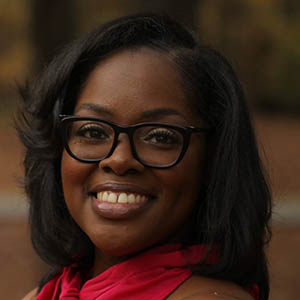Zebra's Industry Solutions can give your business a competitive advantage by connecting people, assets and data to help you make better decisions.
Scale and energise your retail strategy with a digital backbone that unifies your team, informs priorities and drives results with Zebra's retail technology solutions.
Zebra's healthcare technology solutions provide patient identity management, mobile health devices, and business intelligence data to improve efficiency.
Zebra’s manufacturing technology solutions enable manufacturers to become more agile, optimise plant floor performance and embrace market changes.
Zebra's market-leading solutions and products improve customer satisfaction with a lower cost per interaction by keeping service representatives connected with colleagues, customers, management and the tools they use to satisfy customers across the supply chain.
In today's world, the demands on transportation and logistics companies are higher than ever. Dedicated Warehouse, Fleet and Delivery, and Yard and Terminal solutions enable visibility to every aspect of your business and keep operations running flawlessly around the clock.
Zebra's hospitality technology solutions equip your hotel and restaurant staff to deliver superior customer and guest service through inventory tracking and more.
Empower your field workers with purpose-driven mobile technology solutions to help them capture and share critical data in any environment.
Technology is a key enabler in helping the Public Sector provide their frontline and back office workers automate business process and assets with a digital voice.
Zebra’s mobile computing, scanning, and printing solutions connect each operational area in your warehouse to give you the agility to realize transformational gains.
Zebra's range of mobile computers equip your workforce with the devices they need from handhelds and tablets to wearables and vehicle-mounted computers.
Zebra's desktop, mobile, industrial, and portable printers for barcode labels, receipts, RFID tags and cards give you smarter ways to track and manage assets.
Zebra's 1D and 2D corded and cordless barcode scanners anticipate any scanning challenge in a variety of environments, whether retail, healthcare, T&L or manufacturing.
Zebra's extensive range of RAIN RFID readers, antennas, and printers give you consistent and accurate tracking.
Choose Zebra's reliable barcode, RFID and card supplies carefully selected to ensure high performance, print quality, durability and readability.
Zebra's location technologies provide real-time tracking for your organisation to better manage and optimise your critical assets and create more efficient workflows.
Zebra's rugged tablets and 2-in-1 laptops are thin and lightweight, yet rugged to work wherever you do on familiar and easy-to-use Windows or Android OS.
With Zebra's family of fixed industrial scanners and machine vision technologies, you can tailor your solutions to your environment and applications.
Discover Zebra’s range of accessories from chargers, communication cables to cases to help you customise your mobile device for optimal efficiency.
Zebra's OEM scan engines, imagers, and private label OEM products offer flexible integration and help enhance product development with modern OEM technology.
Zebra's environmental sensors monitor temperature-sensitive products, offering data insights on environmental conditions across industry applications.
Keep labour costs low, your talent happy and your organisation compliant. Create an agile operation that can navigate unexpected schedule changes and customer demand to drive sales, satisfy customers and improve your bottom line.
Empower the front line with prioritized task notification and enhanced communication capabilities for easier collaboration and more efficient task execution.
Get full visibility of your inventory and automatically pinpoint leaks across all channels.
Reduce uncertainty when you anticipate market volatility. Predict, plan and stay agile to align inventory with shifting demand.
Drive down costs while driving up employee, security, and network performance with software designed to enhance Zebra's wireless infrastructure and mobile solutions.
Explore Zebra’s printer software to integrate, manage and monitor printers easily, maximising IT resources and minimising down time.
Make the most of every stage of your scanning journey from deployment to optimization. Zebra's barcode scanner software lets you keep devices current and adapt them to your business needs for a stronger ROI across the full lifecycle.
RFID development, demonstration and production software and utilities help you build and manage your RFID deployments more efficiently.
RFID development, demonstration and production software and utilities help you build and manage your RFID deployments more efficiently.
Zebra DNA is the industry’s broadest suite of enterprise software that delivers an ideal experience for all during the entire lifetime of every Zebra device.
Advance your digital transformation and execute your strategic plans with the help of the right location and tracking technology.
The Zebra Aurora suite of machine vision software enables users to solve their track-and-trace, vision inspection and industrial automation needs.
Zebra Aurora Focus brings a new level of simplicity to controlling enterprise-wide manufacturing and logistics automation solutions. With this powerful interface, it’s easy to set up, deploy and run Zebra’s Fixed Industrial Scanners and Machine Vision Smart Cameras, eliminating the need for different tools and reducing training and deployment time.
Aurora Imaging Library™, formerly Matrox Imaging Library, machine-vision software development kit (SDK) has a deep collection of tools for image capture, processing, analysis, annotation, display, and archiving. Code-level customization starts here.
Aurora Design Assistant™, formerly Matrox Design Assistant, integrated development environment (IDE) is a flowchart-based platform for building machine vision applications, with templates to speed up development and bring solutions online quicker.
Designed for experienced programmers proficient in vision applications, Aurora Vision Library provides the same sophisticated functionality as our Aurora Vision Studio software but presented in programming language.
Aurora Vision Studio, an image processing software for machine & computer vision engineers, allows quick creation, integration & monitoring of powerful OEM vision applications.
Adding innovative tech is critical to your success, but it can be complex and disruptive. Professional Services help you accelerate adoption, and maximise productivity without affecting your workflows, business processes and finances.
Zebra's Managed Service delivers worry-free device management to ensure ultimate uptime for your Zebra Mobile Computers and Printers via dedicated experts.
Find ways you can contact Zebra Technologies’ Support, including Email and Chat, ask a technical question or initiate a Repair Request.
Zebra's Circular Economy Program helps you manage today’s challenges and plan for tomorrow with smart solutions that are good for your budget and the environment.

Embrace the Spirit of Juneteenth: How General Gordon Granger’s Audacity Has Reverberated Around the World
Depending on where in the world you were born and where you went you school, you may or may not know the history of Juneteenth. It technically didn’t become a U.S. federal holiday until 2021. However, it has long been commemorated as the end of slavery and, in more recent years, evolved into a day of reflection and action by people all around the world who are continuing to fight systemic racism and slavery. That’s why I feel the story of how Juneteenth came to be deserves to be celebrated, remembered, and retold again today – but this time, from a point of view not often shared.
See, I was born and raised in the Midwest U.S., and there I was taught that the Emancipation Proclamation signed by President Abraham Lincoln on January 1, 1863, ended slavery for all. What I later learned as an adult was that not all enslaved people were freed by their slaveholders. Many were moved to the deep south because Confederate states opposed the Emancipation Proclamation. On June 19, 1865, Union General Gordan Granger arrived in Galveston, Texas and issued General Order No. 3, proclaiming the freedom of all enslaved people in the state. His act of “audacity” freed more than 250,000 enslaved people who were already technically free.
In other words, Juneteenth is a symbol of liberation, unity, and hope, as well as a reminder that justice can prevail even in the face of great adversity. And that is something that every human can appreciate.
General Gordon Granger's arrival in Galveston was a momentous occasion, as it brought news of freedom and ignited a wave of jubilation among the enslaved population. His actions exemplify the courage, leadership, and commitment to justice that we should strive to emulate. In a time when slavery was deeply entrenched in society, General Granger wielded his power and authority to make a profound difference. Today while we celebrate the independence of enslaved people, I also challenge you to embody the audacity of General Gordon Granger.
“How?” you ask. Keep reading!!
First, educate yourself. Go deeper than what you think you know and be open to unlearning some things you were taught. To be like General Granger, we must first seek knowledge and understanding. Educate yourself about the history of slavery, the economic impact of slavery, and how dismantling slavery financially hurt slaveholders. This can then shed light on systemic slavery, systemic racism, and struggles faced by African Americans today, even in our free-ish status. You will also gain an understanding of the ongoing fight for freedom of equality among all people. Read books, explore documentaries, engage in meaningful conversations, and challenge your own biases. Only through education can we fully appreciate the significance of Juneteenth and the work that still lies ahead around the world.
Secondly, optimize your platforms. Use your power and influence to amplify the voices of marginalized communities. In the spirit of General Granger, become an advocate for those whose stories have been silenced or overlooked. Share their experiences, perspectives, and achievements. Create a safe space and use your platforms to promote inclusivity and diversity. Your platform can include social media, public speaking, or everyday conversations; be a voice for change.
This might be a surprise, but support minority-owned businesses. Economic empowerment is a crucial aspect of the struggle for equality. Be intentional with your spending and make a conscious effort to invest in communities that have historically been marginalized. By contributing to the economic growth and success of black entrepreneurs, you can help foster a more equitable society.
Lastly, use your privilege to advocate for policy reform. Systemic change often requires policy reform. Take inspiration from General Granger's commitment to justice and advocate for policies that address racial disparities and promote equal opportunities. Engage with local, state, and national representatives; write letters, make calls, and participate in peaceful protests to hold lawmakers accountable. By actively participating in the democratic process, together, we can work toward a more just and inclusive society.
Juneteenth serves as a reminder of the progress we have made and all the work that remains. General Granger's actions stand as a blueprint for us to use our power, platform, and influence for the betterment of society. Let us honor the legacy of Juneteenth by having the audacity to educate ourselves, amplifying our voices, intentionally supporting minority-owned businesses, and advocating for policy reform – no matter where in the world we live.
###
Related Read:
Juneteenth's Meaning Then and Now

Sheronda Grooms
Sheronda Grooms is currently the Sr. Procurement Manager at Zebra where she is responsible for leading a team of procurement professionals managing indirect spend for travel, marketing, professional services, and human resources. Sheronda has more than 10 years of experience within the indirect procurement industry and has been at Zebra for over six years.
Sheronda holds a Masters of Organizational Leadership from Argosy University. She also serves as the Communications Director for Zebras of African Descent (ZAD), one of Zebra’s Inclusion Networks.
Zebra Developer Blog
Zebra Developer Blog
Are you a Zebra Developer? Find more technical discussions on our Developer Portal blog.
Zebra Story Hub
Zebra Story Hub
Looking for more expert insights? Visit the Zebra Story Hub for more interviews, news, and industry trend analysis.
Search the Blog
Search the Blog
Use the below link to search all of our blog posts.
Most Recent
Legal Terms of Use Privacy Policy Supply Chain Transparency
ZEBRA and the stylized Zebra head are trademarks of Zebra Technologies Corp., registered in many jurisdictions worldwide. All other trademarks are the property of their respective owners. ©2024 Zebra Technologies Corp. and/or its affiliates.






